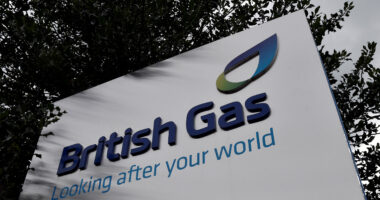THE cost of some everyday groceries has more than doubled over the last year, research has revealed.
Consumer brand Which? analysed inflation on more than 25,000 food and drink products at eight major supermarkets.
This included Aldi, Asda, Lidl, Morrisons, Ocado, Sainsbury’s, Tesco and Waitrose.
It comes as the UK’s inflation rate unexpectedly rose to 10.4% in February, in another blow to households.
Which? looked at the average price of the products in the three months to the end of February 2023 compared to the same time period last year.
Prices increased most at Lidl, followed by Aldi, Asda, Morrisons, Waitrose, Sainsbury’s, Tesco and then Ocado, the data showed.


Which? found a range of everyday items – including milk, meat and fruit – on each supermarket’s list of groceries with the highest inflation.
The company said own-brand products were particularly hard-hit.
The findings showed that budget and own-brand items were subject to higher rates of inflation than premium and branded counterparts overall.
Annual inflation of popular food and drink was found to be at 16.5% across the eight retailers in February.
Most read in Money
In particular, inflation on vegetables, juice drinks, smoothies and cereal rose.
The average price for Asda’s Free From Special Flakes (300g) increased by 129%, rising from 62p to £1.43, Which analysis found.
Meanwhile Waitrose’s Essential Italian Mozzarella Strength 1 (drained 150g) rose from 80p to £1.77, a 121% increase.
Morrison’s Free From Corn Flakes (300g) also rose significantly from 60p to £1.29 (115%).
Sainsbury’s Hubbard’s Foodstore Water (2L), Tesco Creamfields French Brie (200g) and Lidl’s Chene D’argent Camembert (250g) also more than doubled in price.
Which? looked at inflation by supermarket and you can see the rate of increase at each retailer in the list below:
- Lidl – 24.4%
- Aldi – 22.7%
- Asda – 17%
- Morrisons – 16.7%
- Waitrose – 14.2%
- Sainsbury’s – 14%
- Tesco – 14%
- Ocado – 10.3%
Sue Davies, Which? head of food policy, said: “Worryingly our tracker shows that some everyday essentials have more than doubled in price over the last year – with cheaper own-brand items particularly hard hit.
“Supermarkets need to step up and ensure everyone has easy access to basic, affordable food ranges at a store near them, particularly in areas where people are most in need.
“Retailers must also provide transparent pricing so people can easily work out which products offer the best value.”
A Lidl spokesperson said: “We are extremely concerned that since the launch of this ‘tracker’ Which? has consistently chosen to publish information that we, and other retailers, have confirmed to be incorrect. This includes data for products that we do not even sell.”
An Asda spokesperson said the supermarket was “working hard to keep prices in check for customers”.
A Morrison’s spokesperson said: “This is an unprecedented period of inflation and we are working hard to keep prices down and competitive for our customers while maintaining high standards and availability in all our stores.”
An Ocado spokesperson said the retailer has introduced the Ocado Price Promise so customers can be sure they’re getting great value.
While a Waitrose spokesperson said: “Although no retailer is immune to inflation, particularly with dairy products comprising the majority of this basket, we’ve been working hard to keep prices as affordable as possible for our customers – and have already committed a record £100 million to lower the prices on hundreds of everyday staples.”
Aldi declined to comment.
Sainsbury’s and Tesco were contacted for comment.
As well as supermarkets, food companies are also coming under increasing scrutiny for using inflationary pressures as an excuse for ripping customers off.
Mars has hiked the price of its much-loved Galaxy bars by up to 50% at supermarkets.
The hike by Mars is at least five times the rate of general inflation in the UK.
But it’s not just Mars – Unilever, Cadbury and Nestle have all blamed rising cost pressures from increased energy, fuel, transport and ingredient costs for rising prices.
How to reduce the cost of your supermarket shop
There are lots of ways you can reduce the cost of your shop.
You should keep an eye out for yellow stickers to get the best food bargains.
Supermarkets often reduce the price of food nearing its use-by date to shift stock and stop food waste.
You can get up to 75% off products in some cases.
Another trick is to use supermarket loyalty schemes.


For example, Sainsbury’s runs its Nectar card reward scheme, where customers receive points every time they shop in stores.
And checking the price per quantity is another great way to see how much you are actually paying for your groceries.
Do you have a money problem that needs sorting? Get in touch by emailing [email protected]









